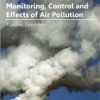Have you ever wondered how an inch became an inch, and why a kilo is not a pound? Do you know what the distance is between the earth and the sun in millimeters? These are questions that can only be answered if you learn more about metrology. Metrology covers both the experimental and theoretical aspects of measurement and the determination of the levels of uncertainty of these aspects. The study of measurement is a basic requirement in any field of science and technology, most importantly in engineering and manufacturing. Since metrology is the study of measurement, it is expected to enforce, validate and verify predefined standards for traceability, accuracy, reliability, and precision. All of these are factors that would affect the validity of measurement. Although these standards vary widely, these are mandated by the government, the agencies, and some treaties. Subsequently, these standards are verified and tested against a recognized quality system in calibration laboratories. The experimental aspect of metrology is that which deals with the investigation of the relationship among variables. These variables are established depending on set of observations being considered or classified. As such, it is in this aspect that hypotheses are established and tested. On the other hand, the theoretical aspect of metrology pacts with the various concepts and principles underlying the study.
Modern Metrology Concerns provides comprehensive overview on the recent developments in the field of Metrology. Theoretical basis and applications are enlightened in accurate and comprehensive manner, providing a appreciated reference to researchers and professionals.













